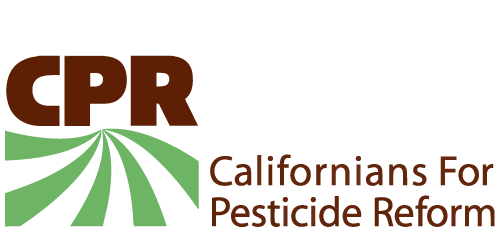Sacramento: Counties should use their full authority to guarantee the same protections from pesticide exposure at home that are already legally required for schools – and be prepared to back it up with stiff fines. That’s according to new executive guidance issued Thursday by the California Department of Pesticide Regulation. The guidance reminds county agricultural commissioners that a 2018 regulation restricting drift-prone pesticide applications during the school day was intended to protect children from exposure in their place of learning. Now that every home is a potential school, that order applies much more broadly.
The order directs county agricultural commissioners to “take a strict approach to assessing penalties,” noting that “violations that occur near homes or schools during the emergency should be considered “Class A” violations and should carry fines at the top of the range.” The order was welcomed by community members in California’s agricultural regions who have long called for greater protections at home.
“My house is surrounded by orange groves that are routinely sprayed with toxic pesticides, and I fear for the health of my children,” said Fidelia Morales, a resident of Lindsay in Tulare County. “At least they don’t get sprayed on at school. Now that every home is a school, and the pesticide spray season is in full swing, we urgently need more protection. If there’s a pesticide application near your home, it’s critical you report it to your county agricultural commissioner.”
The order reminds agricultural commissioners that they are required to consider the potential impact of an application on homes where children are present before issuing any permit to use pesticides classified as Restricted Materials. Protections for schools are still in place, in recognition of the continued role schools play as centers of community, even during the COVID-19 pandemic.
“Children might not be in class but that doesn’t mean they’re not at school,” said Héktor Calderón, coordinator of the Safe Ag Safe Schools coalition in the Monterey Bay area. “Schools have proven to be a critical resource for families in this crisis, including providing breakfast and lunch so that children don’t go hungry. And not all kids have access to the technology they need to keep learning – lots of them are showing up to school just to use the internet.”
In the current crisis, farmworkers have been reclassified as “essential workers” who risk their lives and health to keep America fed. But preliminary studies have shown that COVID-19 mortality is higher for people living with high levels of air pollution, which includes farmworking communities throughout California. The San Joaquin Valley, where much of the nation’s produce is grown with vast pesticide inputs, has some of the nation’s worst air quality. COVID-19 also poses the highest risk to people with preexisting respiratory conditions such as asthma. Pesticides are known to be a major contributor to the epidemic of childhood asthma in the San Joaquin Valley, where the rate is 1 in 6.
While public health advocates applauded the order’s intent, there is broad concern about how well it will be enforced. “This order reminds County Agricultural Commissioners of their pre-existing obligation to protect children and other vulnerable populations,” said Sarait Martinez, organizing director with the statewide coalition Californians for Pesticide Reform. ”What we really need in order to make it stick is advance warning to families before the most hazardous pesticides are used nearby. It’s crazy that Californians don’t have this information.”
Photo Credit: Ruth and Dave Flickr via Compfight cc

